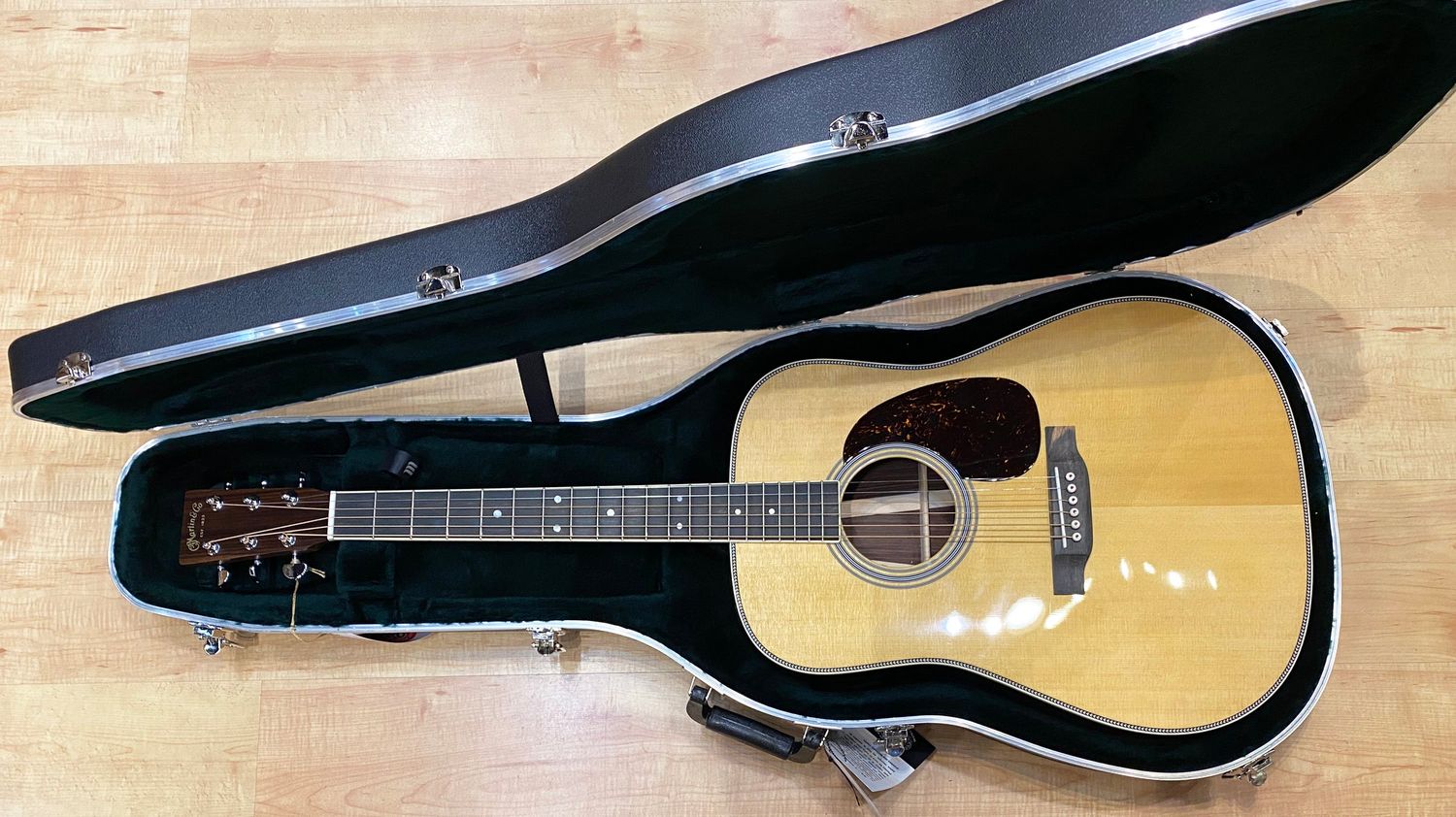Home>Production & Technology>Musician>How To Become A Cruise Ship Musician


Musician
How To Become A Cruise Ship Musician
Published: January 29, 2024
Discover the ultimate guide on how to become a cruise ship musician and embark on a musical journey at sea. Perfect for aspiring musicians seeking exciting opportunities in the captivating world of cruise ship entertainment.
(Many of the links in this article redirect to a specific reviewed product. Your purchase of these products through affiliate links helps to generate commission for AudioLover.com, at no extra cost. Learn more)
Table of Contents
- Introduction
- Understanding the Role of a Cruise Ship Musician
- Requirements and Skills Needed
- Finding Opportunities as a Cruise Ship Musician
- Preparing Your Music Portfolio
- Auditioning for Cruise Ship Music Jobs
- Contract Negotiation and Acceptance
- Life onboard as a Cruise Ship Musician
- Building a Network within the Cruise Ship Industry
- Tips for a Successful Career as a Cruise Ship Musician
- Conclusion
Introduction
Are you a talented musician dreaming of traveling the world and performing for audiences from different corners of the globe? If so, becoming a cruise ship musician might be the perfect career path for you.
Cruise ship musicians have the unique opportunity to combine their love for music with a life of adventure and exploration. They entertain passengers onboard luxury cruise liners, providing live music performances that enhance the overall experience of the guests.
In this article, we will delve into the exciting world of being a cruise ship musician, exploring the requirements, skills needed, finding opportunities, auditioning, contract negotiation, life onboard, networking, and tips for a successful career in this field.
Whether you are a solo artist, part of a band, or even a DJ, there are various positions available for musicians on cruise ships. From intimate lounge performances to full-scale production shows, you will have the chance to showcase your talent across different musical genres.
Join us as we embark on a journey to uncover the ins and outs of becoming a cruise ship musician. Get ready to set sail, ignite the stage, and make waves in the music industry!
Understanding the Role of a Cruise Ship Musician
Before diving into the intricacies of becoming a cruise ship musician, it’s crucial to have a clear understanding of the role and responsibilities that come with it. Cruise ship musicians are not just performers; they are an integral part of the onboard entertainment team.
As a cruise ship musician, your primary duty is to entertain passengers and create a lively atmosphere onboard. This involves performing live music sets or DJing at various venues throughout the ship, such as lounges, bars, theaters, or even poolside stages. Your repertoire may include a diverse range of musical genres to cater to the different tastes and preferences of the guests.
In addition to performances, cruise ship musicians may also be responsible for hosting or participating in music-related activities and events, such as open mic nights, karaoke sessions, or jam sessions with fellow musicians onboard. These opportunities allow you to engage with passengers and showcase your versatility as an artist.
It’s important to note that being a cruise ship musician is not limited to just playing music. You are also expected to be professional, friendly, and approachable towards the passengers, as you will be representing the cruise line during your time onboard. Interacting with guests, taking song requests, and creating a positive and enjoyable atmosphere are all part of the job.
Furthermore, cruise ships often have production shows that feature live musicians as part of the onboard entertainment team. This may involve working closely with singers, dancers, and other performers to deliver a seamless and captivating performance.
Understanding the role of a cruise ship musician goes beyond mere musical talent. Flexibility, adaptability, and the ability to work well within a team are also essential qualities. You will be living and working in a multicultural environment, alongside crew members from various backgrounds. Being respectful, cooperative, and maintaining a positive attitude will contribute to a harmonious and enjoyable experience for everyone.
Now that you have a better understanding of what it means to be a cruise ship musician, let’s explore the requirements and skills needed to embark on this exciting career path.
Requirements and Skills Needed
While musical talent is at the core of being a successful cruise ship musician, there are several other requirements and skills that are essential for entering this competitive industry.
First and foremost, you will need to have a solid foundation of musical skills and proficiency in your chosen instrument(s) or vocal abilities. Cruise ships typically seek versatile musicians who can perform a wide range of musical genres. The ability to learn and adapt to different styles, from jazz and pop to rock and classical, is highly valuable.
Alongside musical talent, strong communication and interpersonal skills are essential. As a cruise ship musician, you will be interacting with passengers and fellow crew members on a daily basis. Being friendly, approachable, and maintaining a positive attitude will help create a welcoming and enjoyable atmosphere onboard.
Flexibility is also key. Cruise ships operate on tight schedules, and you may be required to perform multiple sets or shows per day, sometimes in different venues. Being able to handle last-minute changes or adaptations to your performances is crucial.
In addition to musical and interpersonal skills, there are a few basic requirements for working on a cruise ship. These include being of legal working age, having a valid passport, and being able to pass a background check. You may also need to obtain necessary visas or work permits, depending on the cruise line and the countries you will be visiting.
Physical and mental stamina are also important factors to consider. Cruise ship schedules can be demanding, with long hours of performing and potential time zone changes. Being physically fit and mentally resilient will help you navigate the challenges and maintain a high level of performance throughout your contract.
Lastly, having prior experience performing in diverse settings, such as hotels, resorts, or other live entertainment venues, can greatly enhance your chances of securing a cruise ship music job. This demonstrates your ability to adapt to different audiences and work seamlessly in a professional environment.
By meeting these requirements and possessing the necessary skills, you will be well-prepared to pursue opportunities as a cruise ship musician.
Finding Opportunities as a Cruise Ship Musician
Now that you have the necessary skills and requirements to embark on a career as a cruise ship musician, it’s time to explore how to find opportunities in this exciting industry. Here are some key strategies to help you in your quest:
1. Research Cruise Lines: Begin by researching various cruise lines and their entertainment programs. Each cruise line has its own style and target audience, so understanding their musical preferences and requirements will help you tailor your approach.
2. Connect with Agencies: Many cruise ship musicians find opportunities through talent agencies that specialize in recruiting and placing musicians on cruise ships. These agencies have established relationships with cruise lines and can assist you in finding suitable positions.
3. Attend Auditions: Cruise lines often hold auditions in different cities or online to discover new talent. Stay updated on upcoming auditions and be prepared to showcase your skills. Be sure to have your music portfolio and promotional materials ready to leave a lasting impression.
4. Utilize Online Platforms: Online platforms dedicated to connecting performers with cruise ship opportunities have become increasingly popular. Create a profile, showcase your talent, and actively search for available positions.
5. Network with Industry Professionals: Attend music festivals, industry conferences, and other events where you can connect with industry professionals, including cruise line representatives. Building relationships and networking can lead to valuable connections and potential job opportunities.
6. Showcase Your Online Presence: Create a professional website or social media profiles that highlight your musical abilities, performances, and experience. This will serve as an online portfolio that potential employers can easily access to learn more about you.
7. Work Your Way Up: Starting as a local musician in venues with a reputation for entertainment can provide you with valuable experience and exposure. As you gain more experience and develop a strong reputation, you increase your chances of being noticed and considered for cruise ship music positions.
Remember, the competition can be fierce, so persistence and determination are key. Keep refining your skills, expanding your musical repertoire, and actively pursuing opportunities. With dedication and a bit of luck, you will find your way into the exciting world of cruise ship music.
Preparing Your Music Portfolio
When it comes to landing a cruise ship music job, having a well-prepared music portfolio is essential. Your portfolio is a representation of your skills, experience, and musical style, and it plays a crucial role in impressing potential employers. Here are some key elements to consider when preparing your music portfolio:
1. Audio and Video Recordings: Include high-quality audio recordings of your performances that showcase your musical abilities. Choose a variety of genres to demonstrate your versatility. Additionally, consider adding professionally produced video recordings of your live performances to give employers a visual representation of your stage presence and audience engagement.
2. Song List: Create a comprehensive song list that highlights your repertoire. Include both popular and lesser-known songs from different genres to show your adaptability and range. Organize the song list to make it easy for potential employers to navigate and quickly grasp the types of music you can perform.
3. Biography and Resume: Craft a well-written and concise biography that highlights your musical journey, accomplishments, and experiences. Include details about your training, education, performances, and any notable achievements. Don’t forget to include a current resume that outlines your professional history and relevant musical experiences.
4. Professional Photos: Invest in professional photographs that capture your personality and musical style. Choose images that are visually appealing and showcase you in different musical settings or performing on stage. High-quality photos can make a significant impact on potential employers, giving them a glimpse into your visual presence as a performer.
5. References and Recommendations: Obtain references and recommendations from previous employers, music instructors, or fellow musicians who can vouch for your skills and professionalism. These testimonials add credibility to your portfolio and provide employers with insight into your work ethic and performance quality.
6. Online Presence: In today’s digital age, having a strong online presence is crucial. Build a professional website or create profiles on social media platforms dedicated to promoting your music. Regularly update these platforms with new recordings, gig announcements, and any other relevant information to keep your portfolio current and engaging.
7. Physical Portfolio: While online portfolios are essential, having a physical portfolio can also make an impact during in-person auditions or networking events. Compile all your materials into a professional-looking folder or binder. Ensure that the physical portfolio aligns with the quality and style of your online portfolio.
Remember, your music portfolio is your opportunity to showcase your talent and unique musical identity. Carefully curate your materials and regularly update them as you gain more experience and refine your skills. A well-prepared and visually appealing portfolio will greatly enhance your chances of standing out and securing a cruise ship music job.
Auditioning for Cruise Ship Music Jobs
Auditioning is a crucial step in the process of securing a cruise ship music job. It allows cruise lines to assess your musical talent, stage presence, and overall suitability for the role. Here are some key tips to help you nail your audition:
1. Research the Cruise Line: Familiarize yourself with the cruise line’s musical preferences and performance expectations. Each cruise line has its own unique style and target audience, so tailor your audition to align with their musical identity.
2. Prepare a Diverse Repertoire: Select a variety of songs that showcase your versatility as a musician. Include different styles and genres to demonstrate your adaptability and range. Make sure your song choices showcase your unique musical strengths.
3. Rehearse and Polish your Performance: Practice your audition repertoire thoroughly. Pay attention to details such as timing, dynamics, and phrasing. Consider recording yourself or seeking feedback from fellow musicians to fine-tune your performance.
4. Dress Professionally: Dress in appropriate attire for your audition. Choose an outfit that reflects your personal style while adhering to professional standards. A professional appearance demonstrates your commitment and professionalism to potential employers.
5. Showcase your Stage Presence: In addition to musical talent, cruise lines are also looking for performers who have a strong stage presence and can engage with the audience. Emphasize your charisma, confidence, and connection with the music and the audience during your audition.
6. Be Prepared for Sight-Reading: Some cruise lines may include sight-reading as part of the audition process. Practice your sight-reading skills to ensure you can confidently read and perform music on the spot.
7. Highlight Your Unique Selling Points: During the audition, emphasize any unique skills or experiences that set you apart from other candidates. Whether it’s your ability to sing in multiple languages or your expertise in a specific music genre, highlight what makes you unique as a musician.
8. Stay Calm and Positive: Auditions can be nerve-wracking, but try to remain calm and focused. Fuel your performance with positive energy and confidence. Remember that the audition is an opportunity to showcase your talent, and even if you don’t secure the role, it is valuable experience that can contribute to your growth as a musician.
9. Take Feedback Gracefully: If you receive feedback or constructive criticism during or after your audition, take it graciously. Use it as an opportunity to improve and grow as a musician. Showing a willingness to learn and develop will leave a positive impression on potential employers.
By following these audition tips and putting your best foot forward, you increase your chances of impressing cruise line representatives and securing a coveted cruise ship music job. Remember to stay true to yourself, enjoy the moment, and let your passion for music shine through during your audition.
Contract Negotiation and Acceptance
Once you have successfully auditioned and impressed cruise line representatives, it’s time to navigate the contract negotiation and acceptance process. This step is crucial as it sets the terms and conditions for your employment as a cruise ship musician. Here are some key considerations to keep in mind during this stage:
1. Review the Contract: Carefully read through the contract and ensure you understand all the terms and conditions. Pay attention to details such as contract length, performance expectations, compensation, accommodation, and repatriation arrangements. If there are any parts of the contract that are unclear or concerning, seek clarification from the cruise line representative.
2. Negotiate if Necessary: If you have specific concerns or requests regarding certain aspects of the contract, such as performance schedule, time off, or specific accommodations, respectfully negotiate with the cruise line representative. Keep in mind that negotiating may not always be possible, as cruise lines have their own policies and limitations. However, it’s worth expressing your needs and seeing if there is room for adjustment.
3. Seek Legal Advice: If you feel the need for further guidance or have concerns about the contract, consider seeking legal advice from a professional in maritime or entertainment law. They can ensure that you fully understand the terms and obligations outlined in the contract, protecting your rights and interests.
4. Confirm Important Details: Before accepting the contract, verify and confirm important details such as start date, embarkation location, and any pre-employment requirements, such as obtaining necessary visas or medical examinations. Having a clear understanding of these details will help ensure a smooth transition into your new role.
5. Communicate and Document: Maintain open and transparent communication with the cruise line representative throughout the contract negotiation process. If there are any agreed-upon changes or modifications to the original contract, ensure that they are documented in writing. This will help avoid any misunderstandings or disputes later on.
6. Read and Sign: Once you are satisfied with the contract terms and have addressed any concerns or negotiations, sign the contract. By signing, you are indicating your acceptance of the terms and your commitment to fulfilling your obligations as a cruise ship musician.
7. Get a Copy of the Contract: Request a copy of the signed contract for your records. It is important to have a copy for reference and to ensure you have a clear understanding of the agreed-upon terms throughout your employment onboard.
Remember, contract negotiation and acceptance are key steps in your journey as a cruise ship musician. Take the time to thoroughly review and understand the contract, seek any necessary advice, and ensure that all important details are accurately documented. By doing so, you can embark on your cruise ship music adventure with confidence and peace of mind.
Life onboard as a Cruise Ship Musician
Life onboard as a cruise ship musician is a unique and rewarding experience. Not only do you have the opportunity to perform for diverse audiences, but you also get to immerse yourself in an exciting and dynamic environment. Here are some key aspects of life onboard as a cruise ship musician:
1. Accommodation and Facilities: As a crew member, you will typically have designated accommodations provided by the cruise ship. Depending on your position and the cruise line, you may have a cabin shared with other musicians or have your own private cabin. Cruise ships are equipped with various facilities such as gyms, swimming pools, crew lounges, and dining areas, providing you with opportunities to relax and socialize during your downtime.
2. Performance Schedule: Cruise ship musicians have a demanding performance schedule. You will typically have multiple performances throughout the day or night, depending on the ship’s itinerary and entertainment program. It’s essential to be punctual and prepared for each performance, as well as to maintain a high level of professionalism and stage presence to entertain guests.
3. Exploration and Travel: One of the great perks of being a cruise ship musician is the opportunity to travel and explore various destinations. When the ship is in port, you may have the chance to disembark and explore the local culture, cuisine, and attractions. It’s important to manage your time wisely to balance work obligations with personal exploration.
4. Collaborations and Networking: Life onboard provides excellent opportunities for collaborations and networking with fellow musicians and entertainment professionals. Engage in jam sessions, participate in music-related events, and build connections with your colleagues. These interactions can lead to valuable collaborations and friendships within the industry.
5. Crew Activities and Social Events: Cruise ships organize various activities and social events for crew members to enjoy during their time off. Take advantage of these opportunities to socialize, unwind, and participate in crew parties, themed nights, or talent shows. Engaging in crew activities helps foster a sense of community and camaraderie onboard.
6. Continuous Growth and Learning: Life as a cruise ship musician offers continuous opportunities for growth and learning. Whether it’s honing your musical skills, expanding your repertoire, or learning from other talented performers, use your time onboard to improve as an artist. Cruise lines often provide workshops, training programs, or classes to further develop your talents.
7. Cultural Exchange: Working on a cruise ship exposes you to a diverse and multicultural environment. Interact with guests and crew members from different countries, learn about new cultures, and appreciate the richness of diversity. This cultural exchange can broaden your horizons and deepen your understanding of music and its universal language.
Overall, life onboard as a cruise ship musician is an adventure filled with music, travel, and personal growth. Embrace the unique experiences, make lasting connections, and enjoy the thrill of sharing your talent with audiences from around the world.
Building a Network within the Cruise Ship Industry
Building a network within the cruise ship industry is crucial for career growth and future opportunities as a musician. Networking allows you to establish relationships, gain industry insights, and increase your visibility. Here are some key strategies to help you build a strong network within the cruise ship industry:
1. Attend Industry Events: Attend music festivals, conferences, workshops, and other industry events related to cruise ship entertainment. These events provide opportunities to meet industry professionals, learn about the latest trends, and showcase your talent.
2. Maintain Professionalism: Approach networking opportunities with professionalism and a positive attitude. Be respectful, engage in meaningful conversations, and make a lasting impression. Remember that your reputation within the industry can open doors to future collaborations and referrals.
3. Connect with Fellow Musicians: Establish connections with fellow musicians who have experience working on cruise ships. They can offer valuable advice, insights, and potential referrals. Engage in online forums, social media groups, or attend local jam sessions to connect with like-minded musicians.
4. Engage with Cruise Line Representatives: Attend auditions, job fairs, or recruitment events organized by cruise lines to meet and engage with their representatives. Express your interest, ask questions, and leave a memorable impression. Building relationships with these representatives can lead to future job opportunities.
5. Utilize Social Media: Leverage the power of social media platforms to connect with industry professionals and cruise ship musicians. Follow and engage with cruise lines, entertainment agencies, and influential figures within the industry. Regularly share updates about your musical journey, performances, and accomplishments to increase your visibility and attract potential opportunities.
6. Stay in Touch: Once you have established connections, maintain regular communication to nurture those relationships. Send follow-up emails, congratulate them on their achievements, or share relevant industry news. Building strong, ongoing connections can lead to future collaborations and recommendations.
7. Seek Recommendations and Referrals: Request recommendations and referrals from musicians and industry professionals you have worked with or connected with. Positive testimonials can have a significant impact on your credibility and increase your chances of being considered for future opportunities.
8. Be Supportive and Collaborative: Offer your support and collaboration to fellow musicians whenever possible. Help promote their performances, share their music, or collaborate on projects. By being a supportive member of the cruise ship musician community, you can build goodwill and foster strong relationships.
Remember, building a network takes time and effort. Be proactive, genuine, and supportive of others within the industry. With a strong network, you can tap into valuable resources, foster collaborations, and enhance your chances of thriving as a cruise ship musician.
Tips for a Successful Career as a Cruise Ship Musician
A successful career as a cruise ship musician requires hard work, dedication, and the ability to adapt to the unique challenges of ship life. Here are some tips to help you thrive in this dynamic and rewarding industry:
1. Polish Your Performance Skills: Continuously work on improving your musical skills, stage presence, and audience engagement. Practice regularly, seek feedback, and refine your performances to deliver exceptional shows that leave a lasting impression on guests.
2. Embrace Versatility: Be versatile in your musical repertoire, able to perform a wide range of genres and styles. Cruise ship audiences have diverse tastes, so being able to cater to different preferences will make you a valuable asset to the entertainment program.
3. Maintain a Professional Attitude: Approach your role with professionalism, from the way you present yourself on and off stage to how you interact with passengers and fellow crew members. Show up on time, be respectful, and embrace a positive and friendly attitude.
4. Network and Collaborate: Build relationships with fellow musicians, entertainment staff, and industry professionals onboard. Collaborations can lead to exciting musical opportunities and referrals, while networking can open doors for future jobs and development of your career.
5. Be Adaptable: Ship life is ever-changing. Be flexible and adaptable to different performance venues, schedules, and work dynamics. Embrace last-minute changes with a positive attitude and succeed in delivering exceptional performances under various circumstances.
6. Take Care of Yourself: Ship life can be physically and mentally demanding. Prioritize self-care by getting enough rest, eating well, and staying active. Find outlets to relax and recharge, such as utilizing onboard facilities or engaging in activities that bring you joy.
7. Engage with Passengers: Interact with passengers and create memorable experiences for them. Take song requests, chat with them during breaks, and cultivate a welcoming atmosphere. Building a connection with the audience enhances their onboard experience and leads to positive feedback and return visits.
8. Seek Growth Opportunities: Take advantage of onboard workshops, training sessions, and collaborations with other performers to enhance your skills and broaden your musical horizons. Continuously challenge and develop yourself as an artist.
9. Stay Positive and Grateful: Ship life can have its challenges, but maintaining a positive mindset and being grateful for the opportunities will help you navigate any obstacles. Appreciate the chance to travel, perform, and connect with people from different cultures.
10. Enjoy the Journey: Above all, enjoy the unique experience of being a cruise ship musician. Embrace the adventure, the camaraderie, and the incredible moments that ship life brings. Treasure the memories and use them to fuel your passion for music and the career you have chosen.
By following these tips, you can create a successful and fulfilling career as a cruise ship musician. Remember to stay dedicated, continually seek growth, and cherish the incredible opportunities that come your way.
Conclusion
Being a cruise ship musician offers a unique and exhilarating career path for talented musicians who love to perform and explore the world. It combines the thrill of live music with the adventure of traveling to breathtaking destinations. Throughout this article, we have covered the various aspects of becoming a cruise ship musician, from understanding the role to finding opportunities, auditioning, contract negotiation, and building a successful career.
As a cruise ship musician, you have the opportunity to showcase your musical talent, entertain diverse audiences, and collaborate with other talented performers onboard. You’ll experience the camaraderie of ship life, make connections with industry professionals, and grow as an artist. It’s a profession that requires flexibility, adaptability, and a commitment to continuous improvement.
By investing in your skills, building a strong network, and embracing the unique challenges of ship life, you can navigate your way through the industry and create a successful and fulfilling career. Whether you are performing in intimate lounges, dazzling stages, or even at poolside parties, your music will create memorable moments for guests from around the world.
As you embark on this musical journey, keep in mind the importance of professionalism, versatility, and maintaining a positive attitude. Embrace the opportunities to explore different cultures, network with industry professionals, and continuously hone your craft. Remember, the life of a cruise ship musician is not only about entertaining passengers but also about enriching your own musical journey.
Now, it’s time to take the first step towards your dream of becoming a cruise ship musician. Research cruise lines, prepare your music portfolio, audition with passion, and embrace the adventure that awaits you. Set sail, make waves, and let your music be the soundtrack of unforgettable experiences for cruise ship guests around the world.











